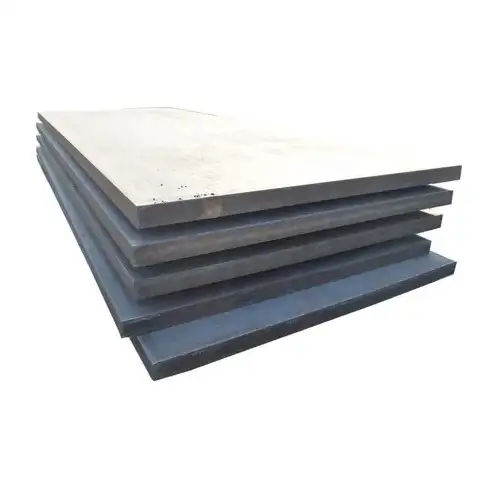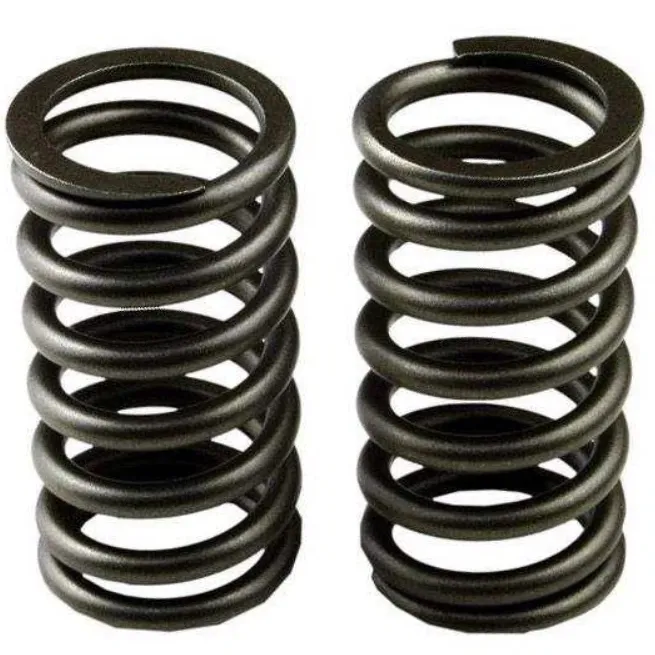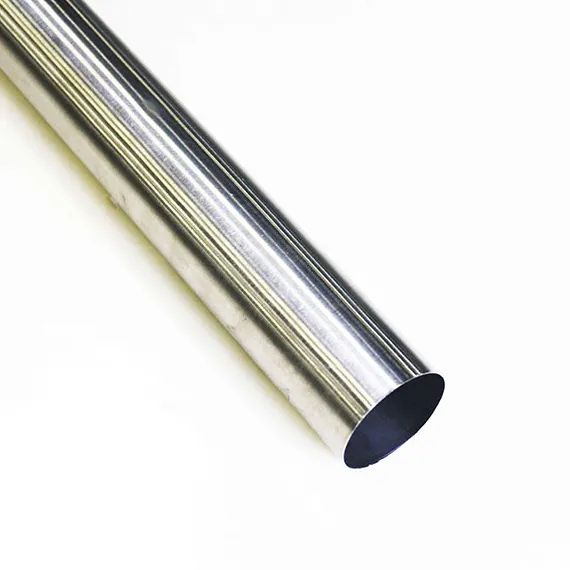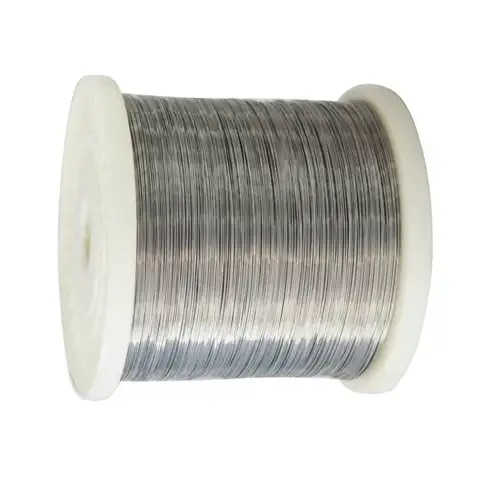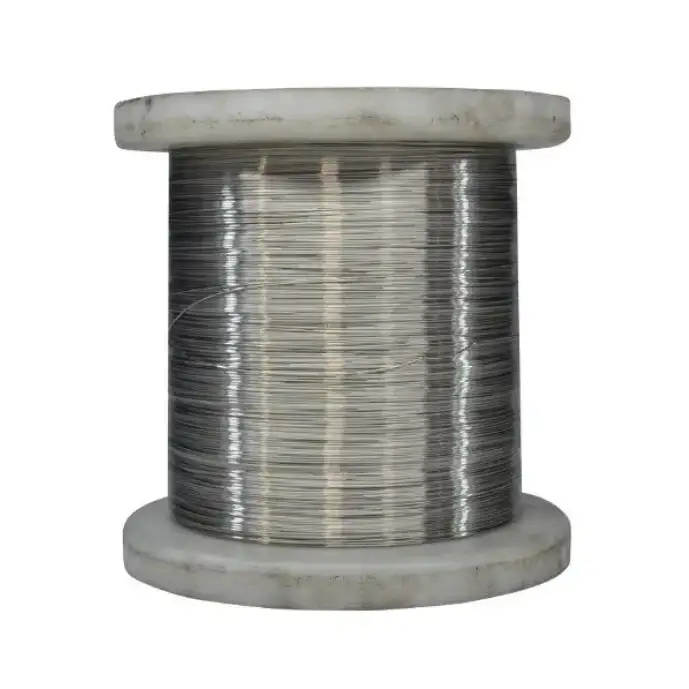4130 steel sheet is a chromium–molybdenum low-alloy steel (commonly called “chromoly”) that combines excellent weldability with good strength, toughness and heat-treat response; for structural, aerospace, automotive and tooling-adjacent uses it offers one of the best strength-to-weight and cost-performance balances among medium-alloy steels. For buyers who need traceable, mill-quality 4130 plate or sheet with competitive factory pricing and quick stock delivery, MWalloys supplies China-origin 4130 steel sheet at 100% factory price with fast stock shipment and QC documentation on request.
What is 4130 steel?
4130 is an SAE/AISI designation for a chromium-molybdenum low-alloy steel (UNS G41300) developed for wrought products that require a good combination of strength, toughness and weldability. It belongs to the 41xx family (the “41” series are Cr–Mo steels commonly called chromoly) and is widely used in structures, aircraft components, driveline parts and tubing because it can be heat treated to a range of strength levels while retaining workable ductility.
When to choose 4130 sheet?
Choose 4130 steel sheet when you need:
-
Weldable alloy with higher strength than plain carbon steels;
-
Good hardenability so heat treatment (quench & temper) can tune strength/toughness;
-
Lightweight structural components where strength/weight matters (e.g., frames, brackets, aerospace skins in lower stress zones);
-
A material compatible with common fabrication processes (forming, machining) but that can be strengthened by thermal processing.
Chemical composition — typical specification (AISI/SAE 4130)
Below is a typical composition range used by mills and material datasheets for AISI/SAE 4130. Actual certified values come from heat-treatment and mill test certificates (MTC).
| Element | Typical range (wt %) |
|---|---|
| Carbon (C) | 0.28 – 0.33 |
| Manganese (Mn) | 0.40 – 0.60 |
| Silicon (Si) | 0.15 – 0.35 |
| Chromium (Cr) | 0.80 – 1.10 |
| Molybdenum (Mo) | 0.15 – 0.25 |
| Phosphorus (P) | ≤ 0.035 |
| Sulfur (S) | ≤ 0.040 (often tighter) |
| Iron (Fe) | Balance (≈ 97 – 98.5) |
(Source: industry datasheets and mill specifications — ranges vary slightly by standard and manufacturer.)
Notes: aircraft-quality or AMS-specified 4130 may have tighter impurity controls (vacuum degassing, lower S/P) and additional acceptance criteria for non-destructive tests.
Specifications and standards
Common specifications, forms and their typical industry references for 4130 sheet, plate and tubing:
| Form | Typical standard / spec | Short notes |
|---|---|---|
| Mechanical tubing (seamless & cold-finished) | ASTM A519 / ASME SA519 | Widely used for mechanical tubing in oil & gas and machinery industries. |
| Plate / sheet | AWS/SAE/AISI designation; mill specs (e.g., AMS variants) | Plate thicknesses and heat-treat options vary. Request MTC and heat-treatment condition. |
| Aircraft quality | AMS 6345 / AMS 6346 (or equivalents) | Vacuum degassed, magnetic particle acceptance, traceability. |
| European equivalent | EN 1.7218 (25CrMo4) | Useful when buying from European mills — chemistry and mechanical targets are comparable. |
Mechanical properties
Mechanical properties depend strongly on thermal condition (annealed, normalized, quenched & tempered). The table below shows typical property ranges for commonly supplied conditions of 4130. Always request the supplier’s MTC for the actual lot.
| Condition | Yield (0.2% offset) | Ultimate Tensile | Elongation (%) (50 mm) | Hardness (HB) |
|---|---|---|---|---|
| Annealed | ≈ 300–460 MPa (varies) | ≈ 560 MPa (typical) | ~25% | ~160–220 HB |
| Normalized | 360–460 MPa | 560–670 MPa | ~20–25% | 180–240 HB |
| Quenched & tempered (air quenched sizes) | 400–900 MPa (depending on temper) | 600–1200 MPa | 10–20% | up to 55 HRC (when fully hardened) |
(Numbers are indicative; different datasheets show e.g., yield ~435–460 MPa and UTS ≈560–670 MPa for normalized states.)
Heat treatment, hardening and weldability
-
Annealing: slow furnace cool to soften for forming and machining; increases ductility.
-
Normalizing: air cooling from austenitizing temperature to refine grain size and improve mechanical uniformity.
-
Quench & temper: used to raise strength. Because 4130 contains Cr and Mo, it has good hardenability and responds well to quench+temper cycles — section thickness affects final hardness.
Welding: 4130 is considered weldable in its lower carbon content form, but preheat and post-weld heat treatment (PWHT) are commonly used for high-strength applications to avoid hydrogen cracking and retain toughness. For critical parts (aircraft, pressure equipment) follow qualified welding procedure specifications (WPS) and request filler metal match recommendations.
Microstructure and sheet behavior
In sheet/plate form, microstructure control (ferrite + tempered martensite, bainite, etc.) determines the combination of toughness and strength after heat treatment. For thin sheet used in structural skins, normalized or annealed conditions are commonly chosen to retain ductility and formability; for high-strength parts, quench & temper will produce martensitic microstructures that are then tempered to target strength/toughness.
What 4130 is equivalent to?
-
European EN: 25CrMo4 (EN 1.7218) — frequently treated as the closest European equivalent.
-
UNS: G41300.
-
Trade names: often marketed as Chromoly, Cr-Mo or “4130 chromoly.”
Why this matters: when sourcing globally, ask for the target standard (AISI/SAE / EN / AMS) and the exact composition/heat-treatment footprint since equivalent names may still come with different quality controls (e.g., aviation AMS vs commodity mill sheet).
What's the difference between 4130 and 4340?
Short answer: 4340 contains significant nickel and generally higher carbon and alloying that yields greater hardenability, ultimate strength and toughness compared with 4130, but 4340 is less weldable and slightly heavier in alloy cost. Typical contrasts:
-
Alloying: 4130 is Cr-Mo; 4340 is Ni-Cr-Mo (nickel content ~1.8% and different C).
-
Mechanical properties: 4340 can reach higher tensile & yield values in comparable heat-treated conditions; normalized 4340 typically shows higher hardness and UTS vs 4130.
-
Weldability: 4130 is easier to weld (lower carbon equivalent); 4340 often needs preheat & PWHT for high-strength applications.
Use 4130 where weldability + good strength matter; use 4340 where maximum toughness and strength (heavy-duty shafts, landing-gear elements) are mandatory and weldability is managed.
Typical applications for 4130 steel sheet
-
Aerospace secondary structural parts, brackets and fittings (aircraft-quality 4130).
-
Automotive roll cages, chassis parts, driveline flanges and brackets.
-
Motorcycle frames, bicycle tubing in certain custom applications (where chromoly tubing is used).
-
Pressure and mechanical tubing (ASTM A519) for oil & gas and hydraulic manifolds.
-
General machinery parts, axles, sprockets, fasteners and tooling that need post-heat-treat strength.
Fabrication, forming and machining notes
-
Forming: annealed or normalized 4130 forms well; if you need sharp bends in high-strength condition, soften first.
-
Machining: machinability is good in annealed state but becomes more difficult after hardening. Use carbide tooling for hardened conditions.
-
Welding: use matching filler metal, control interpass temperature, consider PWHT for critical parts; hydrogen control (low H electrodes, preheat) is recommended for heavy or high-strength assemblies.
Global 2025 price comparison
Important: steel market prices fluctuate daily. The table below is an indicative comparison gathered from current supplier listings and platform quotes (China wholesale, India suppliers, US distributors, European stockists) to help procurement planning. Always request a formal pro-forma with Incoterms, minimum order quantity (MOQ) and MTC.
| Region / source | Typical form | Indicative price (USD / tonne) — 2025 range | Notes / source |
|---|---|---|---|
| China (factory / Alibaba / Made-in-China listings) | Hot-rolled sheet / plate | USD 1,000 – 2,500 / t (varies by thickness & finish) | Supplier listings show wide ranges depending on MOQ and finish. |
| India (local mills & distributors) | Plate/tube | USD 1,200 – 2,800 / t | Domestic mill prices and export quotes vary; logistics add cost. |
| USA (distributors / service centers) | Plate, cut-to-size | USD 2,500 – 4,500 / t | Value includes distribution margins, certification, cut-to-size & inventory fees. |
| Europe (stockists) | Plate / sheet | USD 2,500 – 4,000 / t | EN equivalents (25CrMo4) may have premium for certified material |
How to read this: lower listed China/Alibaba prices are often bulk, raw mill or unfinished; US/EU prices reflect distribution, tighter QC/traceability and lower logistics risk. Get MTC, heat-treatment condition and surface finish in the quote.
Quality control and inspection: what to request
When purchasing 4130 sheet/plate, always ask the supplier for:
-
Mill Test Certificate (EN 10204 3.1 or 3.2) showing chemical analysis and mechanical test results.
-
Heat-treatment condition and processing history (annealed, normalized, quenched & tempered).
-
NDT reports if required (magnetic particle inspection, ultrasonic).
-
Traceability (heat number linked to tests).
-
Dimensional & surface tolerance declarations and finish (e.g., hot-rolled vs pickled & oiled).
Buying guide — why choose MWalloys
As a procurement option, MWalloys positions itself as a China-based manufacturer and trading specialist in alloy steel sheet and plate, supplying 4130 materials with:
-
Factory direct pricing (100% factory price) — fewer middlemen and transparent cost components.
-
Fast stock delivery for common sizes and thicknesses (we maintain rolling stock for popular plate sizes).
-
Full documentation (MTC/heat number, chemical & mechanical results) on standard orders.
-
Support for customs & logistics for export to major markets.
If you need quotations for specific thickness, temper and finish (e.g., 1.5 mm cold-rolled 4130 sheet; 6–25 mm normalized plate; or A519 tubing), provide required dimensions and delivery port and MWalloys can prepare a competitive pro-forma.
FAQs
-
Q: Is 4130 stainless steel?
A: No — 4130 is a low-alloy carbon steel (chromium & molybdenum) but not stainless; it will corrode if left uncoated. -
Q: Can 4130 sheet be welded without preheat?
A: For light gauge or non-critical parts, yes; for thick sections or high-strength assemblies, preheat and PWHT are advisable per approved WPS. -
Q: What is typical hardness after quench & temper?
A: Depends on tempering: target can range from ~30 HRC up to >50 HRC for heavily tempered conditions; specify required hardness in RFQ. -
Q: Is 4130 good for machining?
A: Yes in annealed state; becomes harder to machine after heat treatment — select tooling accordingly. -
Q: What is the European equivalent?
A: EN 25CrMo4 (1.7218) is the commonly cited equivalent. -
Q: Can I use 4130 for pressure piping?
A: Certain forms (tubing) under ASTM A519 are used, but confirm pressure class, heat treatment and NDT requirements first. -
Q: How should 4130 be stored and handled?
A: Keep dry, avoid corrosive environments; protect edges and surfaces during transport; store per mill handling recommendations. -
Q: Does MWalloys provide MTC and NDT reports?
A: Yes — standard practice is to supply MTC (EN 10204 3.1/3.2 on request) and NDT documentation for certified lots. -
Q: What inspection acceptance levels are usual for aerospace 4130?
A: Aerospace AMS specs require vacuum degassed material, magnetic particle inspection per AMS/ASTM acceptance levels; always verify the exact AMS/ASM clause required. -
Q: How do global prices compare for 2025?
A: China offers the most competitive factory prices for bulk, while US/EU stockists charge a premium for traceability and fast local delivery; see the indicative table above and always request live pro-forma quotes.
Practical procurement checklist
-
Confirm standard (AISI/SAE / EN / AMS) and exact chemistry/condition.
-
Request MTC (EN 10204 3.1/3.2).
-
Specify required finish, dimensions, edge condition and flatness.
-
Specify NDT and acceptance criteria (UT, MPI) if critical.
-
Ask for heat treatment report and hardness test.
-
Confirm packing, shipping terms (Incoterms), MOQ and lead time.
-
For critical parts, request sample coupons or third-party lab test.
Summary
4130 steel sheet is a reliable, widely available chromoly alloy that balances weldability, strength and heat-treat versatility. For non-stainless structural components, instrumentation parts, tubing and many OEM uses it remains a top choice where post-heat-treat performance is required. When buying, confirm the exact standard, heat-treatment condition and MTC — and if you need factory pricing with fast stock delivery from China, MWalloys can quote competitive, certified 4130 sheet and plate with documentation and export support.

